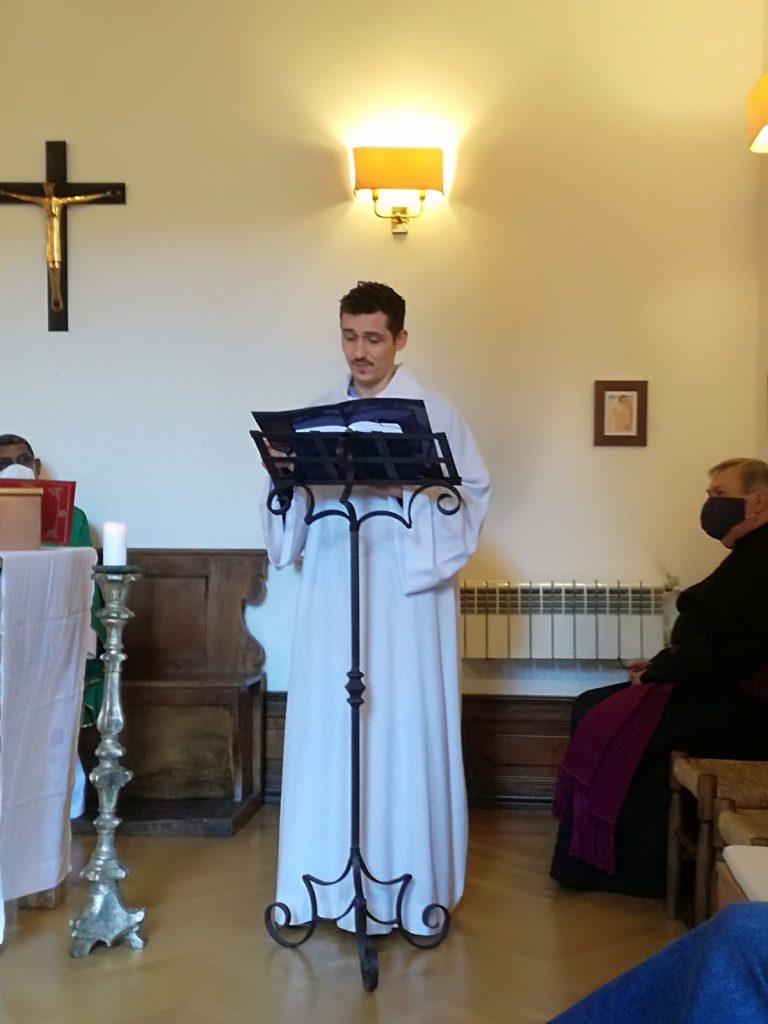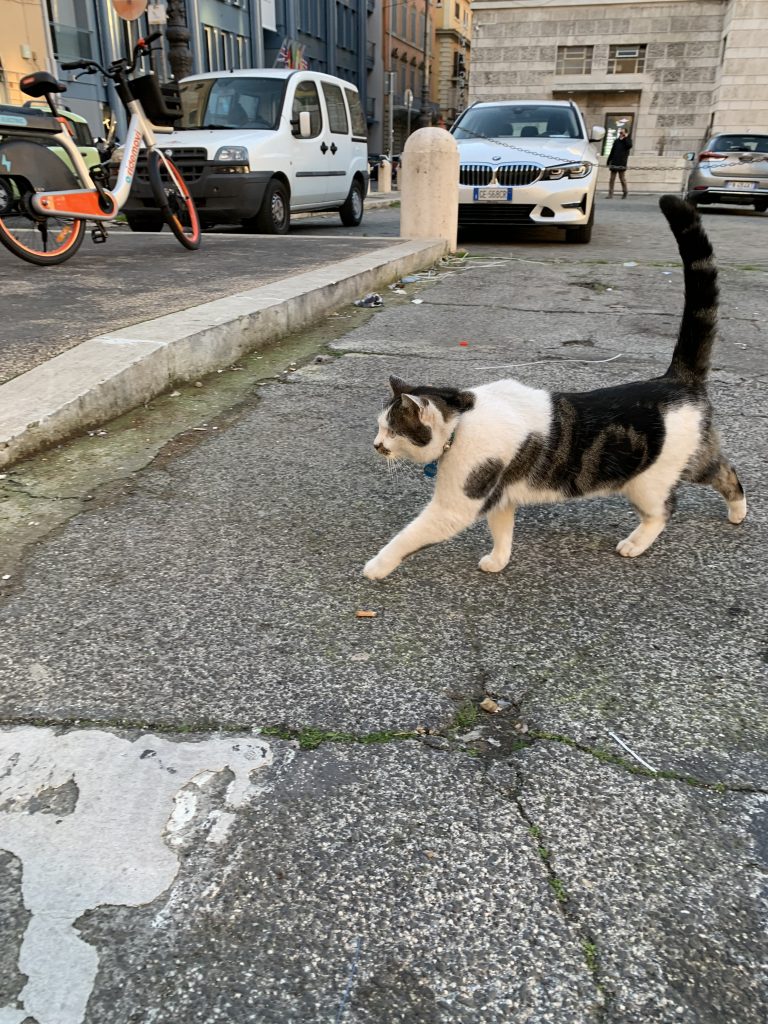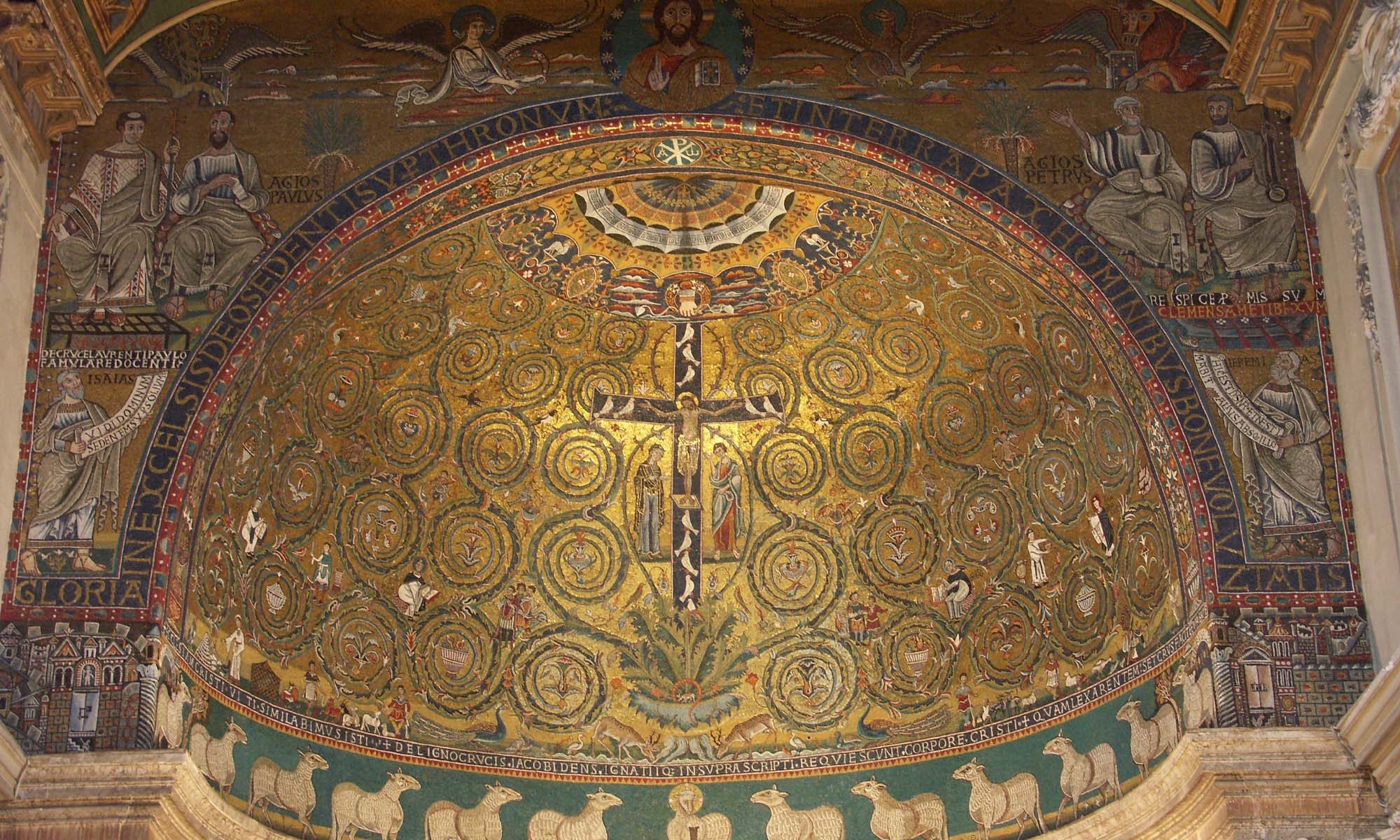Archibishop Ian Ernest, director of the Anglican Centre, invited me to preach at our Tuesday Eucharist. Here is the text of the sermon and a link to the video of the service on the Anglican Centre’s Facebook page.

Tuesday February 22
Anglican Centre, Rome
James 4.1-10; Ps 55:7-24; Mark 9.30-37
The readings we just heard are difficult ones, because they talk about conflict, which is something we usually don’t want to hear about in the church or in the world. These readings are about competing attitudes and antagonist worldviews which from a human viewpoint seem unreconcilable. For many of our brothers and sisters at the margin of the Church, and for us, hearing James declare that “friendship with the world is enmity with God” can sound very hard and a radical clash. See these Christians who don’t like our world, who just dream of heaven and judge everything here below as sinful! Some scholars have showed that the current modern ecological crisis can be traced back to certain Christian teachings which have been misused and misinterpreted. The negative prejudice about the world in some Christian religious settings have given rise to a form of sterile opposition between the material versus the spiritual and led to an abusive relation to God’s creation. Using Gilbert Chesterton’s words, we can say that the ecological crisis we’re living in today is the consequence of “old Christian virtues gone mad”.
This misunderstanding of Christian teachings was already possible in James’ time. For the contemporaries of James as for us today, the cosmos in question referred to the universe, the place where we live, our biotope, populated by physical and spiritual realities. As ecological collapse forces us to realize that we are continually abusing the creation that God has entrusted to us, the assertion that “friendship with the world is enmity with God” seems even more outrageous. Why having friendship, compassion for our world suffering from the consequences of climate change could make us enemies of God? How could you oppose to God friendship with this world, which is our environment, the place where we live, where we rejoice and suffer? It really doesn’t make any sense and it’s deeply revolting. It is not only absurd but also contrary to the spirit of the Gospel and the teaching of Jesus-Christ. How can we then understand what James tells us in regard of Christ’s redeeming love for us? The answer to this crucial question is to be found in the way God acts in this world and enjoins us to participate in his redeeming life. The Gospel we have just heard gives us a pathway of transformation which is not one of condemnation but of collaboration.
The attitude of the disciples who discuss on the way to know who the greatest is should not surprise us. It is our normal way of being and thinking when we compare ourselves to each other, when we see qualities or faults that we think we recognize in others or in ourselves. Am I better or worse than my colleague? Better or worse than my friend? Better or worse than this Christian brother or sister sitting beside me? This attitude is found in all circles where humans live together, and even when we are on our own we still think this way. Living together between humans can foster competition and envy: it happens on boarders between nations, in the market between corporations, at schools between students, or in our families. When, like the disciples, we seek to judge ourselves, to evaluate ourselves, we base our judgment on ideas, facts, things which are always small parts of reality. In our communion of Churches, we also tend to vie with each other on questions of liturgy, moral standards and greater faithfulness to the Bible or tradition. We often quarrel with each other about who is the greater. We think that we can judge the whole, that we can judge and evaluate ourselves, grounding our judgement on our petty human understanding of a situation. We think that some cleverly assemble analyses can be an argument against a whole don’t know. But how can we judge, when, contrary to Christ, who reads the hearts of his disciples, we don’t know the heart of humans and the fullness of God’s love?
Christ’s attitude in the Gospel is fully different from this worldly attitude I just described. Christ doesn’t engage in the quarrel between the disciples about who is the greatest. He doesn’t collect judgements, make files like the judges of this world. He doesn’t provide a hierarchy, he doesn’t rank them according to their seniority, their skills, or their gifts. How different from everything we do, everything we say and everything we hear about each other every day! Instead of that, Christ steps aside from the power struggle by going back to the source of all power, that is his own authority realized in service for all. When the disciples were judging each other in an anarchical and futile way, competing and commenting like we do on social medias, Jesus, like the Lord in the prophet Joel, sits down to judge his people:
The kind of play that he performs when he puts a little child among them and embraces him is a leçon de choses. It is a prophetic sign akin to Ezekiel’s prophetic miming or today’s theatrical and political happenings: Jesus Christ does not teach us primarily through ideas, values or categories that we can easily collect and use as weapons. He welcomes us into his kingdom by showing us what is the ultimate, self-revealing God-like reality: the dynamics of service. The prophetic gestures he performs enacts for all of us the reality of eucharistic living, a life ordered by receiving and giving, not by judgement. This prophetic gesture, which is a judgement of God, responds to the disciples’ divisive attitude of competition: it teaches us that we can only compete in being more selflessly obliging to each other, to the point that we become transparent to God selfless offering of himself.
The mystery of the Eucharist that we are about to enter is the food that allows us to grow is Christ’s full stature. It allows us today to indwell in the reality of the Kingdom and its otherworldly sense of service in this world. Just like this little child among the disciples, it is a silent mystery, a very small and simple meal. It is barely a meal as a child is barely a human, but if we welcome it, we are also welcomed in the divine dynamics of love, and become able to share it. Through this small piece of bread, the body of our Lord, through this cup of wine, the blood of our Lord, we can enter the order of magnitude of the Kingdom in which smallness and service restore us. From this altar flows the whole Eucharistic mystery of our lives which sanctifies our relationships, our ministries, and our daily life of followers of Christ. The Eucharist is the mystery in which our broken world is reconciled to God in Jesus-Christ.
This Eucharistic living is dynamically different from what has led to the current ecological collapse. The current ecological crisis is the fruit of a worldly spirit of selfish interests and competition and a profound misunderstanding of what it means to be servants of God in this world. On the contrary, feeding on the Eucharist is the remedy of the world’s competition and division that leads to its ecological destruction and our own death. By giving himself to us, and tracing thence a way back to him, God commands us in Jesus Christ to order our lives according to the smaller servants of this world: ‘Whoever wants to be first must be last of all and servant of all.’ He became himself the servant of all so that we can be reconciled to him. To do so, he dared to offer himself to us in the species of bread and wine, and be sacrificed as the Lamb of God. As he dared, we can also dare to see today’s “little child” among us in our silent brothers and sisters who are plants and animals. Minerals, plants, animals are our own infancy in God’s self-revelation in the great history of evolution. We are invited, at this altar and in our lives to welcome them in his name in order to welcome him and the Father who has sent him. Being disciples of Christ today is being reminded of the urgency of stopping to compete against each other. We are rather urged to order our lives to Eucharistic living which entails a strong and concrete commitment to ecological service in a spirit of brotherhood. On this common service depends the credibility of our Christian witness in the eyes of those to whom Christ sends us as his disciples.


May I simply say what a relief to uncover somebody that really understands what theyre discussing over the internet. You certainly know how to bring a problem to light and make it important. More and more people really need to check this out and understand this side of the story. I was surprised that youre not more popular because you certainly have the gift.
I’ll right away snatch your rss as I can’t find your email subscription link or e-newsletter service. Do you’ve any? Please let me know in order that I may subscribe. Thanks.